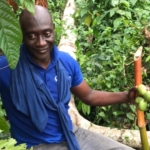General
Running a cocoa farm is a business; we don’t work for the government – Nana Aduna II
The Spokesperson of the Ghana Cocoa Farmers Association, Nana Aduna II, has insisted that cocoa farming is a private enterprise and farmers cannot be treated as though they are employees of the state. Reacting to the newly announced producer price, he argued that government’s approach to pricing ...
MyJoyOnline
published: Aug 23, 2025


The Spokesperson of the Ghana Cocoa Farmers Association, Nana Aduna II, has insisted that cocoa farming is a private enterprise and farmers cannot be treated as though they are employees of the state.
Reacting to the newly announced producer price, he argued that government’s approach to pricing undermines the economic independence of farmers who risk their capital and labour to sustain the sector.
Speaking on JoyNews’ Newsfile programme on Saturday, August 23, Nana Aduna II stressed that farmers deserve to receive fair value for their produce in line with prevailing international market prices.
“Running a cocoa farm is a business; we don’t work for the government. We invest our own money, our sweat, and our labour. We expect to be paid what is due us, not what the government thinks is politically convenient,” he remarked.
He criticised the recently announced price as inadequate, describing it as “a let-down” that fails to address the rising cost of inputs, labour, and living expenses.
According to him, many farmers were misled into believing that they would see a substantial increase, only to be disappointed by what he called “a meagre adjustment.”
“Government raised our expectations and dashed them. This is not sustainable. Farmers are being ripped off, and it is unacceptable,” he added.
Nana Aduna II called for greater transparency and fairness in determining producer prices, urging government to work with farmers as partners rather than subordinates.
“We are not asking for favours; we are only demanding fairness. Cocoa sustains Ghana’s economy, yet the farmers who make it possible are being treated as though they are charity cases. That must change,” he emphasised.
Read More